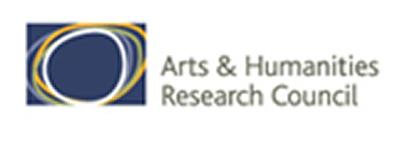Two AHRC-funded Doctoral Awards from the Faculty of Humanities (Closed)

Heinrich Schenker as Theorist, Teacher and Correspondent, 1925-1930.
The University of Southampton has been awarded two doctoral studentships in conjunction with the project relating to the Austrian music theorist Heinrich Schenker, and his work as a writer, teacher and correspondent in the second half of the 1920s, a period which saw the production of the three Meisterwerk in der Musik yearbooks (including the analyses of Mozart’s G minor Symphony and Beethoven’s “Eroica”), development of his ground-breaking “voice-leading analyses”, and progress towards his final theoretical text, Der freie Satz.
Extensive study of the correspondence with publishers (Drei Masken Verlag, Universal Edition), contemporary scholars and musicians (e.g. Otto Erich Deutsch, Antony van Hoboken), and friends and pupils (e.g. Moriz Violin, Hans Weisse, Felix-Eberhard von Cube) forms the backbone of the investigation into this fertile period of Schenker’s career.
The first studentship, in the discipline of Music, will focus on some aspect of Schenker’s unpublished work – to be agreed between the student and his/her supervisor – e.g. documents relating to Schenker’s theoretical and analytical work from the period 1925-1935. (Possible topics include the handwritten documents relating to Der freie Satz, or unpublished voice-leading graphs and texts relating to the music of a particular composer.)
Essential: a strong 2.1 honours degree and an MA (or equivalent) in Music History or Theory; a reading knowledge of German.
Desirable: skills in transcribing handwritten text and music notation.
The second studentship, in the discipline of Modern Languages, will focus on some aspect of literature, culture and politics in Austria, and particularly in Vienna, during the period between the First and Second World Wars. It is expected that the candidate will make use of the project team’s research, which will offer fresh perspectives on the period.
Essential: a strong 2.1 honours degree and an MA (or equivalent) in German, History, or a related subject a reading knowledge of German at a high level.
Desirable: background knowledge of Austrian history and politics in the late 19th and early 20th centuries.
The Music studentship will supervised by the Principal Investigator, Dr William Drabkin (Professor of Music); the Modern Languages studentship will be supervised by Dr Andrea Reiter (Reader in German), Co-Investigator on the project. Advice and assistance will also be given by Mark Cornwall (Professor of History), and by other members of the project team.
The studentships are tenable for a maximum of three years, commencing in January 2011 or as soon as possible thereafter, at an annual stipend of (currently £13,290) and will additionally cover postgraduate tuition fees at the UK/EU rate.
Eligibility. Only citizens of the European Union are eligible for these studentships, and the annual stipend can be paid only to candidates who satisfy the AHRC’s requirements of UK residency. For further details, consult the AHRC Guide to Student Eligibility
Application for both studentships is by curriculum vitae, a sample of written work (between 1000 and 5000 words), and a covering letter explaining why you feel you are suitable for this project. Please also arrange for two academic references to be sent independently by the deadline. All material should be sent to pghums@soton.ac.uk.
Interviews will be held on Friday, 26 November 2010.
For further details see the full descriptions of the project for either the Music studentship or the Modern Language studentship on their respective discipline websites, or e-mail wmd@soton.ac.uk or air@soton.ac.uk .